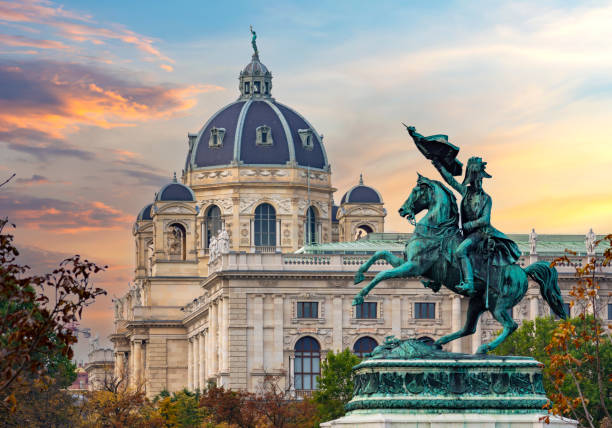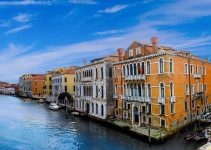Vienna is stunning. The architecture will make you stop mid-stride, coffee houses smell like heaven, and there’s classical music floating from corners you’d never expect. But here’s the thing about this elegant Austrian capital—it has its quirks, its tourist traps, and its unspoken rules that can turn your dream trip into a frustrating experience if you’re not careful.
I’ve watched countless visitors make the same mistakes, from ordering the wrong coffee to wandering into overpriced tourist zones when the real magic happens just two streets over. Some of these missteps cost you money. Others cost you time or rob you of authentic experiences.
If you’re planning a visit, you’ll want to sidestep these common pitfalls. Your wallet, your schedule, and your memories will thank you.

Things to Avoid in Vienna
Vienna rewards those who know what to skip as much as what to seek out. Here are ten things you’ll want to steer clear of during your visit.
1. Don’t Skip Learning Basic Coffee House Etiquette
Walking into a traditional Viennese coffee house without knowing the unwritten rules is like showing up to a formal dinner in flip-flops. These aren’t Starbucks locations where you grab and go. They’re institutions, some dating back centuries, where locals spend entire afternoons reading newspapers and nursing a single cup.
Here’s what trips people up. You don’t order “a coffee” and expect something drinkable. You’ll get a blank stare or, worse, a mélange when you wanted a schwarzer. The menu reads like a foreign language because, well, it is. A Kleiner Brauner is a small coffee with milk. A Großer Schwarzer is a large black coffee. An Einspänner comes in a glass with whipped cream on top. You need to know what you’re asking for.
The pace throws Americans off, especially hard. Your server won’t rush over every five minutes to refill your cup or ask if everything’s okay. That’s not rude—it’s respect for your space. You can sit for hours, and nobody will pressure you to leave. But when you do need something, you’ll have to make eye contact and signal. Waving frantically won’t help. A subtle raised hand works better.
One more thing that catches people off guard: you pay at the table, and you round up your bill as a tip rather than leaving cash behind. If your coffee costs €4.50, you might hand over €5 and say that’s fine. Leaving coins on the table after you’ve paid looks odd here.
2. Avoid Eating on Kärntner Straße
This pedestrian shopping street cuts right through the city center, lined with international chain restaurants, gelato shops, and cafes with outdoor seating that look Instagram-perfect. It’s also where you’ll pay double what locals pay for half the quality.
That schnitzel on your plate? It probably came from a freezer. The €15 sandwich you ordered could’ve been €6 three blocks away. Restaurants here bank on foot traffic from tourists who don’t know better, so they’ve inflated prices and scaled back on authenticity. You’re basically eating in Vienna’s version of Times Square.
Walk five minutes in any direction off this main drag, and you’ll find family-run restaurants where the food actually tastes like something. Head to the neighborhoods where rent isn’t astronomical and competition keeps everyone honest. Neubau, Josefstadt, and even parts of Leopoldstadt—these areas serve real food at real prices.
The only exception? If you desperately need a bathroom and don’t mind buying an overpriced drink for access, fine. Otherwise, save your appetite and your euros for somewhere that deserves them.
3. Don’t Waste Money on the Fiaker Carriages
Those horse-drawn carriages parked near St. Stephen’s Cathedral look romantic in photos. In reality, they’re expensive, uncomfortable, and the horses are standing in traffic breathing exhaust fumes while drivers charge you €95 for a 40-minute ride through streets you could walk in fifteen minutes.
The drivers will call out to you, promising a magical tour of Old Vienna. What you actually get is a bumpy ride on cobblestones while someone points out buildings you can barely see over tourists’ heads. The romance evaporates quickly when you’re wedged into a hard seat with traffic honking around you.
Your money goes much further renting bikes or buying a 24-hour public transport pass. You’ll see more, learn more, and actually enjoy the experience. Plus, Vienna’s tram system is an attraction itself—riding the Ring Tram gives you a guided tour for a fraction of the cost, and you can hop off whenever something catches your eye.
If you really want a carriage ride for the memory, at least negotiate. The posted prices aren’t set in stone, and drivers will often drop their rates if it’s late in the day and they haven’t had many customers. But honestly? Skip it entirely and spend that money on a concert ticket instead.
4. Avoid Visiting Only During Peak Summer Months
July and August turn Vienna into a crowded, sweaty version of itself that locals abandon for mountain vacations. The city wasn’t built for heat. Most buildings lack air conditioning because they’re historical landmarks, which means museums become stuffy, hotel rooms turn into ovens, and you’ll be competing with tour groups ten deep at every major sight.
Prices spike during these months too. Hotels know demand is high, so rates can double compared to the shoulder season. Restaurants in tourist areas get overwhelmed, service slows to a crawl, and you’ll wait 45 minutes for a table at places that seat you immediately in May or September.
Here’s what really suffers: the experience itself. Standing in line for an hour to enter Schönbrunn Palace under a blazing sun, surrounded by selfie sticks and crying children, isn’t why you traveled to Vienna. You came for elegance and culture, not crowd management.
Visit in spring or fall instead. April through June and September through October give you mild weather, smaller crowds, and lower prices. The city looks gorgeous when the chestnuts are blooming or the leaves are turning. Christmas markets from late November through December offer magic that summer can’t touch—though expect cold weather and pack accordingly. You’ll actually be able to appreciate the architecture and museums without elbowing through human traffic.
5. Don’t Rely Solely on Credit Cards
Vienna is more modern than you might expect, but cash still rules here in ways that surprise Americans used to tapping their phones for everything. Plenty of places don’t accept cards at all. Small bakeries, market stalls, some restaurants, public bathrooms, and even a few museums operate cash-only.
You’ll find this out the hard way when you’re standing at a counter with a fresh pretzel and apple strudel, ready to pay, and the cashier just points to a sign: “Nur Bargeld.” That means cash only, and no, they don’t have Venmo.
ATMs are everywhere, so getting cash isn’t hard. But know that your bank will probably charge you foreign transaction fees unless you’ve got a card specifically designed for travel. Withdraw larger amounts less frequently to minimize these fees. Most ATMs let you choose English as your language, making the process straightforward.
How much should you carry? I’d say keep €50-100 on you daily. That covers coffee, snacks, public restroom fees (usually €0.50), and tips. You can use cards at major restaurants and hotels, but having cash prevents those awkward moments where you’re scrambling to find an ATM because your card got declined at a street food stand.
6. Avoid the “Mozart in Historical Costumes” Concerts
Walk around the city center, and you’ll see people in powdered wigs and period dress handing out flyers for classical concerts. They’ll promise you an authentic Viennese musical experience featuring Mozart’s greatest hits. What they’re actually selling is a tourist trap dressed up in fancy clothes.
These concerts aren’t bad exactly. The musicians can play, the venues are often beautiful, and you’ll hear recognizable pieces. But you’re paying €40-60 for something that feels manufactured for tour buses. The performers are rarely Vienna’s best musicians—those are playing at the Musikverein or the State Opera. You’re getting the B-team performing greatest hits for an audience that wouldn’t know the difference.
Real classical music in Vienna costs less and delivers more. The Vienna State Opera sells standing room tickets for €10-15. You’ll see world-class performances of full operas, and yes, you’ll be standing, but it’s an authentic experience that locals actually attend. The Musikverein, home of the Vienna Philharmonic, offers concerts at various price points, and even their cheapest seats beat those tourist shows.
If standing for three hours doesn’t appeal to you, look for concerts at smaller venues like the Karlskirche, where musicians perform actual concerts rather than medleys designed for people with short attention spans. You’ll pay similar prices but get quality that justifies the cost.
7. Don’t Expect Shops to Be Open on Sundays
Sunday hits, and suddenly Vienna shuts down. Grocery stores? Closed. Clothing shops? Closed. Pharmacies? Mostly closed, though a few stay open for emergencies. This catches visitors off guard, especially if you arrive on Saturday evening and plan to stock up on supplies Sunday morning.
Austria has strict laws protecting Sunday as a day of rest. Only restaurants, cafes, museums, and essential services operate. It’s quiet, peaceful, and lovely if you’re prepared. It’s frustrating if you need deodorant, snacks for your hotel room, or a phone charger and everything’s shuttered.
Plan ahead by shopping on Saturday. Stock your hotel room with water, snacks, and any supplies you might need. Check pharmacy locations that rotate emergency Sunday hours—your hotel can tell you which one is open. Think of Sunday as museum day, cafe day, or park day rather than errands day.
The upside? Vienna on Sunday has a slower, more relaxed feel. Locals are out walking, cafes are full of people reading, and parks are packed with families. You’ll see a side of the city that weekday hustle hides. Just don’t plan on buying anything besides food and coffee.
8. Avoid Ignoring Public Transport Ticket Validation
Vienna’s honor system for public transport seems almost naive. You can board trams, buses, and metro trains without showing anyone a ticket. No turnstiles, no conductors checking as you enter. This leads some visitors to think they can ride for free.
Terrible idea. Plain-clothes inspectors ride the system constantly, and they will check your ticket without warning. One moment you’re sitting peacefully, the next someone’s flashing a badge and asking to see proof of payment. No ticket? That’s a €105 fine on the spot. They don’t care that you’re a tourist or that you didn’t understand the system.
But here’s the thing that trips people up even more: having a ticket isn’t enough. You must validate it before boarding by sticking it into the blue validation machines at station entrances or on trams. An unvalidated ticket counts as no ticket, which means you’re still getting fined €105 even though you paid.
The system is actually simple once you understand it. Buy your ticket from machines at stations or tobacco shops. Stick it in the blue box until you hear a stamp. Keep it with you until your journey ends. Single tickets last one trip, while 24-hour or 72-hour passes need validating only once. It takes literally five seconds and saves you a hefty fine plus the embarrassment of arguing with an inspector who’s heard every excuse imaginable.
9. Don’t Overlook the “Silly Little Tax”
Vienna has this thing called the Ortstaxe, which is basically a city tourism tax that hotels add to your bill. It’s not included in the price you see when booking, so that €100 per night room actually costs €103.50 after tax. Not a huge amount, but it surprises people who budgeted down to the last euro.
The tax varies slightly by season and hotel category, but usually runs around 3.5% of the room rate per person per night. Four nights for two people? You’re looking at an extra €15-20 added to your total. Budget hotels charge it. Five-star hotels charge it. Airbnbs are supposed to charge it too, though enforcement there gets murky.
Some hotels collect it upfront when you book. Others charge it at checkout, which can throw off your final day if you’ve already allocated your remaining cash. Always ask about taxes and fees when you’re comparing prices. That slightly more expensive hotel might actually cost less once you factor in taxes, resort fees, and breakfast charges.
Keep some buffer in your budget for these add-ons. Vienna isn’t trying to trick you—the tax funds tourism infrastructure and city services—but it’s one of those small details that can derail your budget if you’re cutting things close.
10. Avoid Disrespecting Quiet Hours and Social Norms
Austrians take their rules seriously, and Vienna expects you to do the same. Quiet hours are legally enforced. Between 10 PM and 6 AM, and during midday rest periods (typically 1-3 PM), you’re expected to keep noise down. No loud music. No vacuuming. No moving furniture. No shouting conversations on your hotel balcony.
Your neighbors will complain. The hotel will ask you to stop. In extreme cases, police actually respond to noise complaints and can fine you. This isn’t Americans being loud and Europeans being uptight—it’s respecting shared spaces and people’s right to peace.
Other norms matter too. You greet shopkeepers when entering stores—a simple “Grüß Gott” or “Guten Tag” works. You don’t jaywalk when locals are watching, even if no cars are coming, because rules are rules. You don’t eat or drink on public transport. You keep conversations at reasonable volumes in restaurants and museums.
Dress codes are more formal than you might expect. Showing up to a nice restaurant in shorts and flip-flops will get you seated in the back corner, if they seat you at all. The opera has actual dress requirements—no sneakers, no t-shirts, no baseball caps. Even casual cafes expect you to look like you tried a little.
These aren’t arbitrary restrictions meant to stifle your vacation fun. They’re how Vienna maintains the civilized, pleasant atmosphere that makes it one of Europe’s most livable cities. Follow them, and you’ll blend in. Ignore them, and you’ll mark yourself as exactly the kind of tourist that gives the rest a bad name.
Wrapping Up
Vienna will charm you if you let it. The key is approaching this elegant city on its own terms rather than expecting it to bend to tourist expectations. Skip the traps, respect the culture, and plan around the quirks.
You’ll find that avoiding these common mistakes opens up space for real experiences—the kind that don’t make it onto tour bus itineraries. That’s where Vienna’s magic actually lives, waiting for visitors smart enough to look past the obvious.


